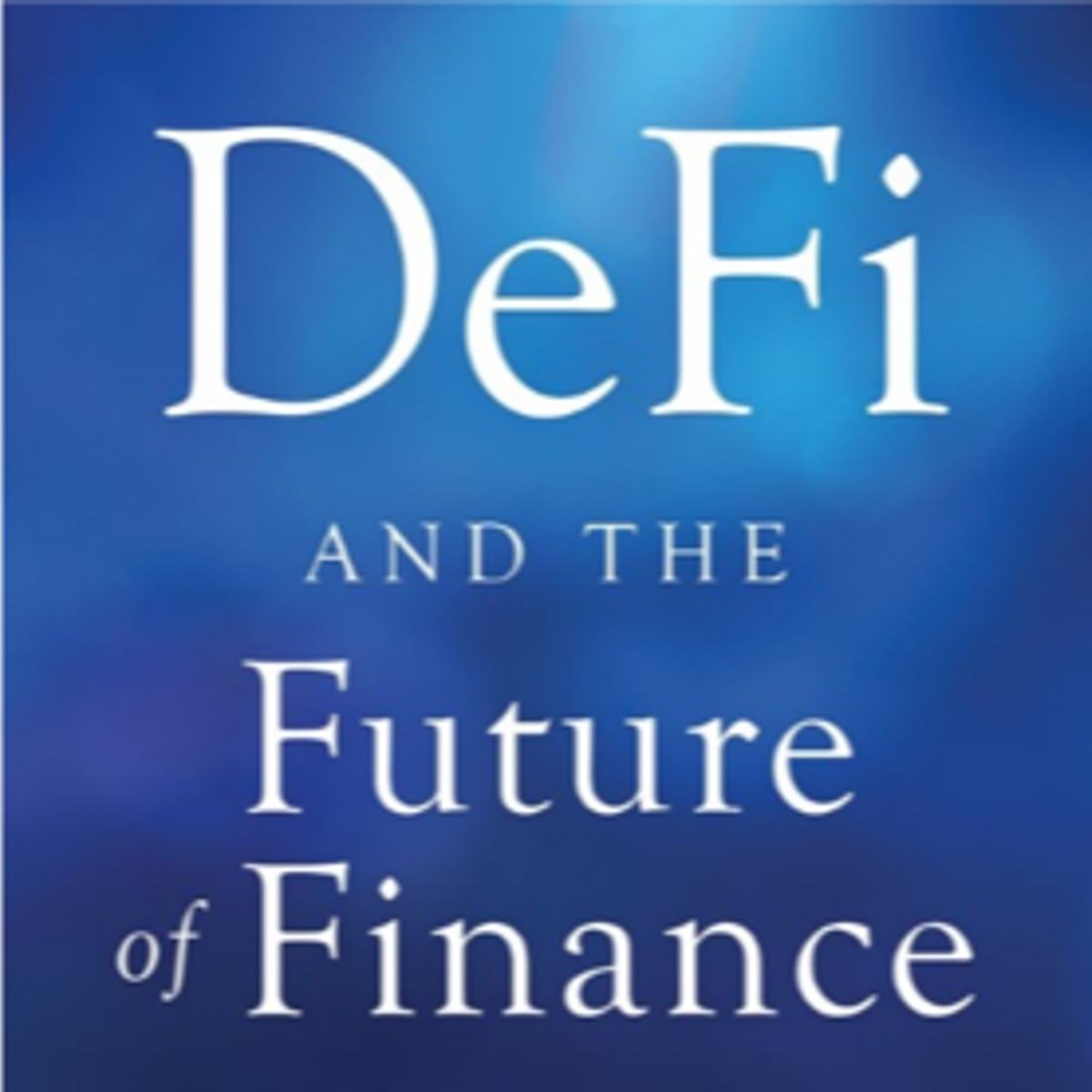Back to Courses









Finance Courses - Page 17
Showing results 161-170 of 270

Decentralized Finance (DeFi) Infrastructure
Decentralized Finance: The Future of Finance is a set of four courses taught by Campbell R. Harvey (Professor of Finance at the Fuqua School of Business, Duke University, and a Research Associate of the National Bureau of Economic Research) that focus on decentralized finance (DeFi). In this first course, we begin by exploring the origins of DeFi and take a broad historical view from the earliest barter economies, such as the first peer-to-peer exchanges of bartering, to present day. The course also looks at historical examples of money having value even though it is not officially backed.
We then focus on the key infrastructure components: blockchain, cryptocurrency, smart contracts, oracles, stablecoins and decentralized applications (or dApps). This includes discussion of the mechanics of the Ethereum and Bitcoin blockchains including cryptographic hashing.
Next, we focus on the specific problems that DeFi is designed to solve: inefficiency (costly, slow, and insecure today), limited access (1.7 billion are unbanked), opacity (we need to trust regulators to monitor banks and the regulators have mixed records), centralized control (financial system is oligopolistic imposing higher fees than we would have in a competitive market) and lack of interoperability (it is difficult to move funds from one financial institution to another today). The course closes by exploring many of the myths about the crypto space.

Securing Investment Returns in the Long Run
In this course, you will learn about the famous dichotomy between active and passive investing, how to appropriately measure and analyze investment performance and what the future trends in the investment management industry are.
You will first learn about absolute and relative performance, risk-adjusted returns and how to decompose investment performance. The focus will then shift to the two main categories of investment vehicles, active and passive funds, and what they entail in terms of expected performance. Finally, you will explore the worlds of sustainable finance, neurofinance and fintech, three areas of research that will shape the future of the investment management industry.
You will also benefit from the insights of experts from UBS, our corporate partner, on the practical implementation of the various concepts we will develop in this course.

Financing and Profiting from Innovation for Corporate Entrepreneurs
This course is for aspiring or active corporate entrepreneurs who wants to understand how to secure and manage funding for their corporate venture. We will demystify key accounting and financing concepts to give corporate entrepreneurs a guide to developing the business case for their ideas, and securing funding to translate ideas into reality.
This course focuses on four key areas:
• Learning the fundamentals and how to create financial statements for new ventures within the corporate environment;
• Examining valuation techniques for understanding how to assess and grow the value of the corporate venture;
• Exploring the different sources of internal and external financing for the corporate venture; and
• Applying lessons learned in the course to structure a funding deal and pitch the corporate venture.
Try this course for FREE at https://www.coursera.org/learn/corporate-entrepreneurs-financing

Portfolio Optimization using Markowitz Model
In this 1-hour long project-based course, you will learn how to optimize a two-asset portfolio at the optimum risk-to-return with finding the maximum Sharpe ratio. To achieve this, we will be working around the Sharpe ratios of two given assets, we will find the efficient frontier of these assets, and find where they intersect the best by utilizing the Markowitz Model.
The content of this course draws on the knowledge of Project: Compare Stock Returns with Google Sheets, so you are highly recommended to take it first if you are not familiar with how the Sharpe ratio is calculated and don’t have an understanding of how the risk-to-return metrics work.
Note: This course works best for learners who are based in the North America region. We're currently working on providing the same experience in other regions.
This course's content is not intended to be investment advice and does not constitute an offer to perform any operations in the regulated or unregulated financial market.

Computational Methods in Pricing and Model Calibration
This course focuses on computational methods in option and interest rate, product’s pricing and model calibration. The first module will introduce different types of options in the market, followed by an in-depth discussion into numerical techniques helpful in pricing them, e.g. Fourier Transform (FT) and Fast Fourier Transform (FFT) methods. We will explain models like Black-Merton-Scholes (BMS), Heston, Variance Gamma (VG), which are central to understanding stock price evolution, through case studies and Python codes. The second module introduces concepts like bid-ask prices, implied volatility, and option surfaces, followed by a demonstration of model calibration for fitting market option prices using optimization routines like brute-force search, Nelder-Mead algorithm, and BFGS algorithm. The third module introduces interest rates and the financial products built around these instruments. We will bring in fundamental concepts like forward rates, spot rates, swap rates, and the term structure of interest rates, extending it further for creating, calibrating, and analyzing LIBOR and swap curves. We will also demonstrate the pricing of bonds, swaps, and other interest rate products through Python codes. The final module focuses on real-world model calibration techniques used by practitioners to estimate interest rate processes and derive prices of different financial products. We will illustrate several regression techniques used for interest rate model calibration and end the module by covering the Vasicek and CIR model for pricing fixed income instruments.

Supply Chain Finance Market and Fintech Ecosystem
This course provides an in-depth understanding of the Supply Chain Finance market including insights on the potential and current market size, market penetration, growth, and distribution. You’ll be introduced to the four distinctive groups serving the Supply Chain Finance market and learn about the main stakeholders and market participants in a Supply Chain Finance program. By the end of the course, you’ll have reviewed the key trends and upcoming risks affecting Supply Chain Finance and gained a deeper understanding of the key challenges in the market amongst corporate clients, banks, non-bank financiers and technology service providers.
Country Level Economics: Macroeconomic Variables and Markets
This course discusses how macroeconomic variables affect individuals’ personal, professional, and public activities and lays the foundation for the analysis of the mechanisms that drive macroeconomic variables. It starts by introducing the key macroeconomic variables and explaining how they are defined and measured to interpret macroeconomic data properly.
Then, the course offers a perspective for separating out various parts of the economy driven by different processes and for combining those components to develop a richer view of the whole. In particular, it applies this approach to the analysis of the relationship of the trade deficit with the budget deficit and private savings, offering insights about some key determinants of the balance of payments. The third and fourth modules focus on the analyses of the foreign currency and money markets to provide fundamental models of the interest rate and exchange rate determination. They also discuss how these variables interact with each other and with the macroeconomic conditions, particularly monetary policy, and the expectations about the future trends in the economy.
You will be able to:
• Systematically assess the national and international economic environment in which you live and work
• Analyze macroeconomic issues using key tools
• Be a more effective professional in your line of activity.
This course is part of Gies College of Business’ suite of online programs, including the iMBA and iMSM. Learn more about admission into these programs and explore how your Coursera work can be leveraged if accepted into a degree program at https://degrees.giesbusiness.illinois.edu/idegrees/.
Investments II: Lessons and Applications for Investors
In this course, you will start by reviewing the fundamentals of investments, including the trading off of return and risk when forming a portfolio, asset pricing models such as the Capital Asset Pricing Model (CAPM) and the 3-Factor Model, and the efficient market hypothesis. You will be introduced to the two components of stock returns – dividends and capital gains – and will learn how each are taxed and the incentives provided to investors from a realization-based capital gains tax. You will examine the investment decisions (and behavioral biases) of participants in defined-contribution (DC) pension plans like 401(k) plans in the U.S. and will learn about the evidence regarding the performance of individual investors in their stock portfolios. The course concludes by discussing the evidence regarding the performance of actively-managed mutual funds. You will learn about the fees charged to investors by mutual funds and the evidence regarding the relation between fees charged and fund performance. Segments of the portfolios of mutual funds that may be more likely to outperform and examples of strategies designed to “earn alpha” will also be introduced.
Learners are welcome to take this course even if they have not completed "Investments I: Fundamentals of Performance Evaluation," as the first module contain a review of investment fundamentals and regression analysis to get everyone up to speed. Also, the course contains several innovative features, including creative out-of-the-studio introductions followed by quick-hitting "Module in 60" countdowns that highlight what will be covered in each module, four "Faculty Focus" interview episodes with leading professors in finance, and a summary of each module done with the help of animations!
This course is part of the iMBA offered by the University of Illinois, a flexible, fully-accredited online MBA at an incredibly competitive price. For more information, please see the Resource page in this course and onlinemba.illinois.edu.

Application of AI, InsurTech, and Real Estate Technology
In this course, you’ll learn about the emerging technologies in Artificial Intelligence and Machine Learning that are utilized in InsurTech and Real Estate Tech. Professor Chris Geczy of the Wharton School has designed this course to help you navigate the complex world of insurance and real estate tech, and understand how FinTech plays a role in the future of the industry. Through study and analysis of Artificial Intelligence and Machine Learning, you’ll learn how InsurTech is redefining the insurance industry. You’ll also explore classifications of insurtech companies and the size of the InsurTech, Real Estate Tech, and AI markets. You will also explore FinTech specialties with Warren Pennington from Vanguard. By the end of this course, you’ll be able to identify emerging technologies of AI, Machine Learning, and Financial Technologies from a variety of insurance and real estate tech companies and their impact in the future of finance and investments.
Accounting Analysis I: The Role of Accounting as an Information System
This course is the first course in a five-course Financial Reporting Specialization that covers the collection, processing, and communication of accounting information (via financial reports) about economic entities to interested parties (i.e., managers and external stakeholders such as stockholders and creditors). To gain the most relevant knowledge from these courses, learners should have taken a basic accounting course prior to this Specialization (which can be done through Coursera courses, such as any accounting course from the Fundamentals of Accounting Specialization: https://www.coursera.org/specializations/accounting-fundamentals). This Specialization focuses on accounting concepts, principles and theory with an emphasis on problems that arise in applying these concepts for external reporting purposes. Specific emphasis is placed on measurement of assets, liabilities, equities and income, as well as disclosure of additional information that may assist users understand the financial reports.
After a brief introduction to the course, we will spend time understanding the overall financial accounting structure and standards as well as review the fundamental accounting process used to prepare the financial statements, which will establish a framework for the study of the concepts in the remaining courses in the Financial Reporting Specialization. In this course, we will begin our review of key information included in the Balance Sheet and Income Statement and their related financial disclosures. The Statement of Cash Flows will be introduced briefly with more discussion to follow in later courses of the Specialization. Also, we will provide a cursory review of key concepts involving time value of money as we will finish this course with focus on revenue recognition, including discussion of the new revenue standard. We will review the general approach for recognizing revenue, special issues affecting revenue recognition including long-term construction contracts. In addition, we will discuss and review common ratios used in profitability analysis.
The University of Illinois at Urbana-Champaign, consistently ranked as one of the nation's top three accounting programs, now offers a master’s in accounting at a very affordable tuition rate and is completely online. The iMSA is a full Master of Accountancy program and students graduate with an MS that is highly recognized. Try an open course or two, then apply for admission into the credit-bearing version as you may be eligible to take credit-bearing courses during the application process. If you are missing any prerequisites for the full degree, you can complete Coursera courses to demonstrate readiness and strengthen your application for the iMSA. For more information on this exciting iMSA online program, refer to this link: https://www.coursera.org/degrees/imsa
Popular Internships and Jobs by Categories
Find Jobs & Internships
Browse
© 2024 BoostGrad | All rights reserved